Understanding Hormonal Imbalance
What is a Hormonal Imbalance?
A hormonal imbalance occurs when there is either too much or too little of a hormone in the body. This can lead to a variety of symptoms, including weight gain, mood swings, fatigue, acne, and lower libido.
Hormones are chemical messengers produced by the endocrine system that regulate many critical bodily processes, including growth, metabolism, and reproduction.
Additionally, sleep disturbances and digestive issues, such as bloating or constipation, are often linked to hormonal imbalances. Imbalances in sex hormones like testosterone, estrogen, and progesterone can lead to specific symptoms.
For instance, men may experience reduced muscle mass and erectile dysfunction, while women might face irregular menstrual cycles and hot flashes.
Hormonal imbalances can disrupt essential bodily functions, such as insulin sensitivity, leading to conditions like diabetes, as well as affecting skin health.
Diagnosing a hormonal imbalance often involves blood tests to measure hormone levels. Treatment typically depends on identifying and addressing the underlying cause of the imbalance.
If you feel like you might be struggling with a hormonal imbalance, set up a consultation today with one of our experts at Rejuvenate HRT. We will set up a personalized game plan for you and your specific health needs.
Signs and Symptoms of Hormone Imbalances
Hormone imbalances can manifest in a variety of ways, and the symptoms can differ from person to person. Some common signs that you might be dealing with a hormonal imbalance include unexplained weight gain or loss, persistent fatigue, and mood changes such as anxiety or depression.
Skin issues like acne or dry skin, hair loss or thinning, and changes in your menstrual cycle or fertility can also be indicators. Additionally, sleep disturbances and digestive issues, such as bloating or constipation, are often linked to hormonal imbalances.
It’s important to remember that these symptoms can be caused by a range of conditions, not just hormonal imbalances. If you’re experiencing new or persistent symptoms, it’s crucial to consult with a healthcare provider to determine the underlying cause and receive appropriate treatment.
Causes of Hormonal Imbalances
Hormonal imbalances can be triggered by a variety of factors, making it essential to understand what might be affecting your hormone levels. Genetics can play a significant role, as can environmental factors like exposure to toxins or chronic stress.
Medical conditions such as thyroid disorders or polycystic ovary syndrome (PCOS) are also common culprits. Lifestyle factors, including a poor diet, lack of sleep, and insufficient physical activity, can contribute to hormonal disruptions.
Additionally, certain medications, such as birth control or hormone replacement therapy, can impact hormone levels. Aging is another natural factor, as hormone levels fluctuate throughout different life stages.
Medical Conditions as Causes
Certain medical conditions can significantly impact hormone production and balance. Thyroid disorders, such as hypothyroidism or hyperthyroidism, can lead to significant hormonal disruptions. Adrenal gland disorders, including Cushing’s syndrome or Addison’s disease, also affect hormone levels.
Pituitary gland disorders, such as hypopituitarism or hyperpituitarism, can disrupt the balance of hormones produced by this critical gland.
Polycystic ovary syndrome (PCOS) is another common condition that affects hormone levels, particularly in individuals assigned female at birth. Diabetes, especially type 2 diabetes, can lead to insulin resistance, further complicating hormonal balance.
Lifestyle Factors
Your lifestyle choices can have a profound impact on your hormonal health. A diet high in processed foods and sugar can lead to insulin resistance and other hormonal issues. Lack of sleep or disrupted sleep patterns can interfere with the production of essential hormones.
Chronic stress is another major factor, as it can elevate cortisol levels and disrupt the balance of other hormones. Physical inactivity can also contribute to hormonal imbalances, as regular exercise is crucial for maintaining hormonal health.
Additionally, exposure to environmental toxins, such as pesticides or heavy metals, can interfere with hormone production and balance.
Making healthier lifestyle choices, such as eating a balanced diet rich in whole foods, getting regular exercise, and managing stress, can support hormonal balance and improve overall well-being.
Causes of Hormone Imbalances and Weight Gain
Hormone levels naturally fluctuate throughout life due to various factors, including age, stress, and lifestyle choices. Significant life stages, such as puberty, pregnancy, and menopause, can cause dramatic hormonal shifts. Other common causes of hormonal imbalances include:
Chronic Stress: High stress levels can lead to elevated cortisol, which can disrupt other hormones.
Medications: Certain medications, particularly hormonal contraceptives or hormone replacement therapies, can impact hormone levels.
Medical Conditions: Conditions like polycystic ovary syndrome (PCOS), thyroid disorders, and diabetes can lead to hormonal disruptions.
Environmental Factors: Exposure to endocrine disruptors found in plastics, pesticides, and personal care products can affect hormone levels.
Adrenal Gland Disorders: Disorders of the adrenal glands, which are major endocrine glands, can lead to hormonal imbalances by disrupting the production of hormones that regulate various physiological processes.

Dietary Strategies for Hormone Balance
Foods that Support Hormone Balance and Healthy Fats
Omega-3 Fatty Acids: Foods rich in omega-3s, such as fatty fish (like salmon and mackerel), flaxseeds, and walnuts, can help regulate hormone production and reduce inflammation, improving overall hormonal health.
Additionally, omega-3s can support the balance of thyroid hormones, which is crucial for maintaining overall hormonal equilibrium.
Healthy Fats: Incorporating healthy fats from avocados, nuts, seeds, and olive oil can support hormone synthesis and reduce insulin resistance, promoting better hormonal balance.
Fiber-Rich Foods: Consuming a variety of fruits, vegetables, and whole grains helps regulate blood sugar levels and supports the excretion of excess hormones, which can prevent imbalances.
Antioxidant-Rich Foods: Foods high in antioxidants, such as berries, leafy greens, and nuts, can reduce oxidative stress and inflammation, which can affect hormonal health.
Foods to Avoid for Hormone Balance
Sugar and Refined Carbohydrates: High sugar intake and refined carbohydrates can cause insulin spikes, promoting insulin resistance and disrupting hormonal balance.
Unhealthy Fats: Processed meats, fried foods, and trans fats can lead to inflammation and hormone dysregulation, contributing to health issues.
High-Sodium Foods: Excessive salt can cause water retention and disrupt hormonal balance, particularly affecting blood pressure regulation.
Artificial Additives: Foods high in preservatives, artificial colors, and flavors can interfere with hormonal function and promote inflammation.

Lifestyle Changes for Hormone Balance
Managing Stress and Exercise
Regular Exercise: Engaging in regular physical activity—whether it’s brisk walking, yoga, or strength training—can significantly reduce stress and help balance hormone levels. Exercise promotes the release of endorphins, improving mood and reducing anxiety.
Stress Reduction Techniques: Implementing practices such as mindfulness meditation, deep breathing exercises, or progressive muscle relaxation can lower cortisol levels and promote hormonal balance.
Adequate Sleep: Aim for 7-9 hours of quality sleep each night, as insufficient sleep can disrupt hormone levels, particularly those related to stress and appetite.
Joyful Activities: Engaging in hobbies or activities that bring you joy, such as reading, gardening, or spending time with loved ones, can significantly reduce stress and promote emotional well-being.
Natural Supplements for Hormone Balance
Omega-3 Fatty Acids: Supplements such as fish oil or flaxseed oil can reduce inflammation and support hormonal balance, particularly in women experiencing menstrual cycle irregularities.
Liver-Enhancing Nutrients: Nutrients like vitamin C, milk thistle, and turmeric support liver function, which is essential for hormone metabolism and balance.
Probiotics: A healthy gut microbiome plays a critical role in hormone regulation. Probiotic supplements can help promote gut health and balance hormones.
Vitamin D: This essential vitamin plays a role in hormone regulation and immune function. Ensure adequate sun exposure or consider a supplement if levels are low.

Managing Hormonal Imbalances
Managing hormonal imbalances often requires a multifaceted approach, combining lifestyle changes with medical treatments.
Hormone replacement therapy (HRT) is a common treatment that involves taking hormones to replace those that are deficient or imbalanced. Medications, such as birth control or anti-androgen medications, can also help regulate hormone levels.
Lifestyle changes, including diet and exercise modifications, are essential for supporting hormonal health. Stress management techniques, such as meditation or yoga, can help lower cortisol levels and promote balance. Supplements, like omega-3 fatty acids or probiotics, can also support hormonal regulation.
It’s essential to work with a healthcare provider to determine the best course of treatment for your specific hormonal imbalance. By taking a proactive approach and making informed choices, you can effectively manage hormonal imbalances and improve your overall health.
Treatment Options for Managing Hormonal Imbalances
Achieving Hormone Balance Naturally
Maintaining a balanced diet rich in nutrients and making lifestyle adjustments can significantly impact hormone regulation.
Prioritize Whole Foods: Focus on consuming whole, unprocessed foods that provide essential nutrients for hormone balance.
Stay Hydrated: Proper hydration supports overall health and aids in metabolic processes, including hormone regulation.
Limit Alcohol and Caffeine: Excessive intake of alcohol and caffeine can disrupt hormone levels. Moderation is key.
Track Your Progress: Keep a journal of your diet, exercise, and symptoms to identify patterns that may help in understanding what works best for your body.

Frequently Asked Questions
How do you fix hormone imbalance?
Addressing hormonal imbalances often involves dietary changes, lifestyle modifications, stress management, and, when necessary, medical intervention.
Can I balance my hormones naturally?
Yes, many lifestyle changes and dietary adjustments can help naturally balance hormone levels.
What can I drink to balance my hormones?
Herbal teas, such as chamomile and peppermint, and smoothies packed with greens, fruits, and healthy fats can support hormonal balance.
How do I know my hormones are imbalanced?
Symptoms such as unexplained weight gain or loss, fatigue, mood swings, irregular periods, and sleep disturbances can indicate hormonal imbalances.
Balance Hormonal Levels Conclusion
Balancing hormonal levels naturally is achievable through a combination of dietary changes, lifestyle modifications, and effective stress management techniques.
By understanding the factors that influence hormonal health and making informed choices, individuals can promote a harmonious hormonal balance that enhances overall well-being.
If you suspect you have a hormonal imbalance, set up a consultation today with one of our healthcare experts, who can guide you through diagnosis and appropriate treatment options. Embrace the journey toward better health, and take proactive steps to support your hormonal health today.


